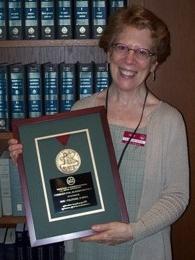By Elaine Grublin
Librarians love tracking statistics and studying trends. Here at the MHS our statistics show that July is typically the busiest month of the year and February is typically the slowest. Generally speaking we use this information to make informed decisions about scheduling staff, arranging vacations, planning for long term projects, and determining how to best serve our researchers.
This summer everything the library staff thought they knew about summer trends flew out the window. As I mentioned, July is traditionally our busiest month of the year. Looking back at the statistics for the previous five summers, we averaged 380 daily visits to the library in the month of July. Last year, we had a record setting 444 daily visits from 202 individual researchers.
This summer the reader services staff was set, mentally and physically, to weather the July storm. We had extra part-time hours scheduled; we told everyone to wear their sneakers for ease of running up and down the stairs to the stacks; staff meetings were filled with pep talks and words of wisdom from veteran staff members. Then the storm appeared to pass us by. Our July numbers were way down. We had only 334 daily visits, by 141 individual researchers. Far below our averages! We scratched our heads wondering where the researchers had gone. Perhaps it was a sign of the struggling economy — lack of funding available for extended research trips or family vacations to Boston. We did not know.
But the storm was waiting, gathering strength. It struck in August. Statistically speaking August is a refreshing change of pace after the July rush. The past five years show an average of 260 daily visits in the month. Last summer we had only 220 daily visits from 124 individual researchers. So far this month we have already seen more than 340 daily August visits from 148 individual researchers.
Along similar lines, it is almost unheard of to have a day where twenty or more individual researchers visit the reading room in August. In July it is typical, but in the last five Augusts it has only happened once — August of 2009. This summer we have already had five days with twenty or more researchers, hitting a 2010 high of twenty-six researchers on August 12th.
Long story short, what looked like it was shaping up to be a slow summer, was indeed just a statistically unusual summer, proving to be the busiest summer we have seen in the recent past. Perhaps the airlines and hotels were offering better fares in August this summer. We will need to look at why this happened. Yet with two business days remaining in the month, the library already surpassed the total number of researchers for the combined months of July and August for the past five years, reaching 675 total visits as of Saturday.
Now we must wait until next summer to see if this is an emerging trend, or just a statistical anomaly.


 We’ve recently acquired three wonderful new microfilm reader/scanners, and they’re receiving rave reviews from staff and readers alike (research fellow Matt Bahar, pictured here, has been making good use of one in recent days), and other library visitors have been tossing around some pretty impressive superlatives about them (by which I mean positive superlatives, which was not usually the case with the previous readers).
We’ve recently acquired three wonderful new microfilm reader/scanners, and they’re receiving rave reviews from staff and readers alike (research fellow Matt Bahar, pictured here, has been making good use of one in recent days), and other library visitors have been tossing around some pretty impressive superlatives about them (by which I mean positive superlatives, which was not usually the case with the previous readers). Anne Bentley, our Curator of Art, was presented with a Presidential Award by the
Anne Bentley, our Curator of Art, was presented with a Presidential Award by the